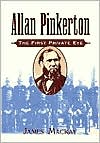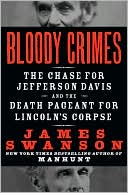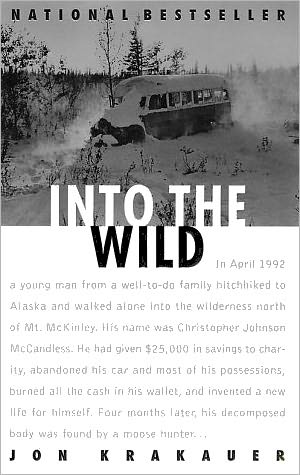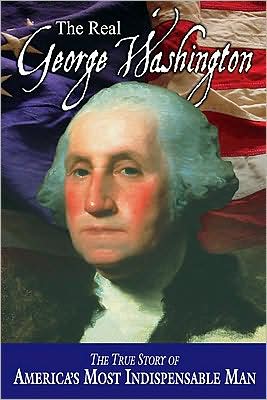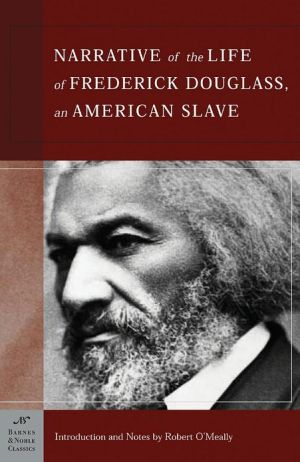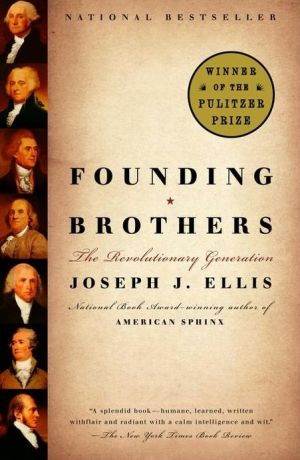Allan Pinkerton: The First Private Eye
Allan Pinkerton\ Around the world, his name is synonymous with security and protection. The legendary agency he began nearly one hundred and fifty years ago is still in operation today, as are many of the surveillance and infiltration techniques he originated. His company's trademark symbol, a large, unblinking eye, inspired the term private eye.\ As befits a man who spent so much of his life working behind the scenes, Allan Pinkerton's life has been shaded in mystery and misinformation. Now,...
Search in google:
Allan Pinkerton The First Private Eye Around the world, his name is synonymous with security and protection. The legendary agency he began nearly one hundred and fifty years ago is still in operation today, as are many of the surveillance and infiltration techniques he originated. His company’s trademark symbol, a large, unblinking eye, inspired the term private eye. As befits a man who spent so much of his life working behind the scenes, Allan Pinkerton’s life has been shaded in mystery and misinformation. Now, after a decade of painstaking research, award-winning biographer James Mackay pierces the web of contradictions, half-truths, and myths to reveal, for the first time, the true story of the life and career of this colorful, complex, and controversial man. Born in Scotland, Allan Pinkerton arrived in America with a solitary silver dollar in his pocket and—as legend has it—the law hot on his heels. A cooper by trade, he might have spent his life making barrels but for a fateful trip in the summer of 1846. On an uninhabited island, where he had gone to cut saplings for barrel staves, Pinkerton happened upon a thicket where a blackened patch suggested a recent fire. To Pinkerton, it also suggested something was amiss. In what became his very first case, the young cooper employed his acute powers of deductive reasoning, patience, and perseverance that would become the hallmarks of his modus operandi. His dogged determination (and several damp, cold, lonely nocturnal vigils) paid off when a gang of counterfeiters was discovered. The modern detective was born. Through four decades of tumultuous history, Allan Pinkerton left an indelible mark. From the Underground Railroad to the Chicago underworld to Pennsylvania and the civil unrest of the notorious Molly Maguires, he took on bandits, bank robbers, kidnappers, spies, and even Jesse James himself. His role in the Civil War was critical: as Lincoln’s spymaster, he managed a network of spies who worked behind Confederate lines and tackled espionage at the highest levels in Washington itself. In particular, James Mackay’s scrupulously balanced account challenges the conventional view of the controversy surrounding Pinkerton’s role in the Peninsular campaign of 1862. Was poor intelligence responsible for prolonging the war? A man of firm beliefs and principles, Allan Pinkerton could be a fair-minded employer—and an absolute tyrant as a husband and father. As intriguing as any of the detective’s countless cases, Allan Pinkerton: The First Private Eye is a masterful look at an extraordinary figure, filled with the rich, revealing details that distinguish the best biographies. Publishers Weekly Mackay's story of Pinkerton (1819-1884), founder of the famous Pinkerton Detective Agency is much more than a biography. It is a colorful history of 19th-century America that is told through the prism of one life that intersected with many fascinating characters and unlikely, though true, events. The Scottish-born Pinkerton fled to the U.S. after being hounded by the police as a radical militant. In Pinkerton's own telling, he and his 15-year-old bride were shipwrecked near the coast and then robbed by Indians after they made shore. Eventually, they arrived in Dundee, Ill., where Pinkerton worked as a cooper. Not long after, on a trip to find timber for his barrels, Pinkerton discovered and helped capture a band of counterfeiters. He then joined the regular constabulary for a few years before striking out on his own in 1850. Pinkertons would be involved in many of America's great criminal cases; they clashed with the James gang, pursued Butch Cassidy and the Sundance Kid, infiltrated the Mafia and investigated the Lindbergh baby kidnapping. But Pinkerton also left his mark in a larger arena: he hired the first women detectives, helped to create the idea of a secret service while protecting President Abraham Lincoln, and was instrumental in Civil War espionage for the Union. Although the agency is still active today in international police work, for most Americans, the Pinkertons are indelibly linked to the suppression of various labor actions. Mackay, the Scotch author of entertaining biographies of Michael Collins, William Wallace and Robert Service, provides plenty of details of the man and his times, but without sacrificing his fluid narrative. (Sept.) FYI: Allan's son William Pinkerton was a major player in Ben Macintyre's Napoleon of Crime: The Extraordinary Story of Adam Worth, the World's Greatest Modern Criminal from FSG. (Forecasts, May 26)
The Gorbals, 1819-38.The Young Militant, 1839-42.Emigrant, 1842-47.Chicago, 1847-59.The Road to War, 1859-61.Setting Up the Secret Service, 1861.The Wild Rose of the Confederacy, 1861-62.Behind Enemy Lines, 1861-62.Major Allen, 1862-64.Aftermath of War, 1865-68.Diplomatic Incident, 1868.Intimations of Mortality, 1868-77.Last Years, 1876-84.Notes.Select Bibliography.Index.
\ Publishers Weekly - Publisher's Weekly\ Mackay's story of Pinkerton (1819-1884), founder of the famous Pinkerton Detective Agency is much more than a biography. It is a colorful history of 19th-century America that is told through the prism of one life that intersected with many fascinating characters and unlikely, though true, events. The Scottish-born Pinkerton fled to the U.S. after being hounded by the police as a radical militant. In Pinkerton's own telling, he and his 15-year-old bride were shipwrecked near the coast and then robbed by Indians after they made shore. Eventually, they arrived in Dundee, Ill., where Pinkerton worked as a cooper. Not long after, on a trip to find timber for his barrels, Pinkerton discovered and helped capture a band of counterfeiters. He then joined the regular constabulary for a few years before striking out on his own in 1850. Pinkertons would be involved in many of America's great criminal cases; they clashed with the James gang, pursued Butch Cassidy and the Sundance Kid, infiltrated the Mafia and investigated the Lindbergh baby kidnapping. But Pinkerton also left his mark in a larger arena: he hired the first women detectives, helped to create the idea of a secret service while protecting President Abraham Lincoln, and was instrumental in Civil War espionage for the Union. Although the agency is still active today in international police work, for most Americans, the Pinkertons are indelibly linked to the suppression of various labor actions. Mackay, the Scotch author of entertaining biographies of Michael Collins, William Wallace and Robert Service, provides plenty of details of the man and his times, but without sacrificing his fluid narrative. (Sept.) FYI: Allan's son William Pinkerton was a major player in Ben Macintyre's Napoleon of Crime: The Extraordinary Story of Adam Worth, the World's Greatest Modern Criminal from FSG. (Forecasts, May 26)\ \ \ \ \ Library JournalAward-winning historian Mackay's (Michael Collins, LJ 1/97) research skills show through in this book. He apparently spent many years studying one of the most enigmatic characters from the Civil War era, Allan Pinkerton. Though Pinkerton started the first U.S. detective agency after successfully uncovering a counterfeit ring, little was known about him. The author does an excellent job of tracing Pinkerton's early life and his arrival in the United States from Scotland. Then he examines better-known aspects of Pinkerton's careerhis part in Lincoln's train ride through Baltimore, investigation of the Confederate spy Rose Greenhow, and association with Gen. George McClellan, his mentor and hero. Mackay is perhaps too apologetic in his treatment of Pinkerton's intelligence reports to McClellan, which vastly overstated the number of Confederate troops, and he blames McClellan's lack of initiative on political intrigue from Washington. Nevertheless, Mackay's work will appeal greatly to historians and Civil War specialists.Mark E. Ellis, Albany State Univ. Lib., Ga.\ \ \ Kirkus ReviewsMackay, a Scottish historian whose previous works include a biography of fellow Scot Robert Burns (1993), turns his attention to another Glaswegian, Allan Pinkerton.\ Pinkerton is best remembered as the founder of the private- detective agency that still bears his name. When he started the agency in Chicago in 1850, it had a staff of two; today it has a staff of thousands, with offices around the world. Pinkerton, who was born in 1819, was early left fatherless; as an adolescent he became a cooper's apprentice. His skill as a barrelmaker would be matched by his rapid rise in the ranks of radical politics, where he became prominent in the Scottish branch of the Chartist movement. Undoubtedly, his controversial past led in part to his decision to emigrate to America in 1842. Pinkerton and his wife, Joan, made their way to Illinois, settling near the budding city of Chicago. Scouting a seemingly deserted island for wood, Pinkerton came upon a mysterious campfire that led him to a counterfeiting ring. Soon after, he was appointed deputy sheriff of Cook County, and his career in law enforcement was underway. Eventually, he would become head of intelligence for General George McClellan and a key figure in Civil War history. It is in his treatment of the Civil War period, fully a third of the book, that Mackay falls down grievously. Too much of his time is spent in spirited special pleading for McClellan and a defense of Pinkerton's reputation. Mackay is, however, astute in his assessment of the relationship between the growth of Pinkerton's private agency and the railroad industry. After the war Pinkerton was involved in a number of notorious cases, including attempts to bring the James gang to trial and to suppress the Molly Maguires, a secret organization active in the Pennsylvania coalfields.\ More hagiography than biography, this rather lifeless narrative hardly represents a balanced portrayal of a controversial figure.\ \ \
